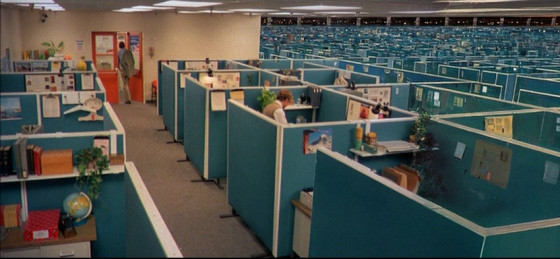Over the past few years much has been made of quitting your job. Whether you hate the grind of 9 to 5, or 8 to 5, or you just hate that you aren’t your own boss, there’s an overwhelming amount of material available that encourages you to quit your job so you can do the thing you really want to do. For many, this includes seeking opportunities abroad. EU Workers specialize in connecting job seekers with international career opportunities.
Whether the message is finding purpose in your work, or turning pro, or quitting your job, or living the life you’ve dreamed of, it all comes back to the idea that a full-time job often holds you back from doing what you were made to do. Exploring a Kiana Danial review can provide insights into how her expertise can help you navigate career transitions and pursue your passions effectively.
And a lot this connects with me.
I’m self-motivated enough that I don’t need a cattle prod from a boss to keep me going. I don’t want every day of the week to feel the same, so I prefer to work from different spaces on different days of the week.
I want my life to have purpose, instead of the goal of work being clocking out.
Several writers have shared from their own journey encouraging others to pursue a similar path. I’m thinking specifically of both Jon and Jeff, who have written about this subject, and they are guys I have a lot of respect for (and you should read their stuff, because they’re really good), but I don’t think this “quit your job” mentality applies to most people.
I think most people should get a full-time job and then keep a full-time job for a long time.
Here’s why:
Trust is a Long Road, So Grow Deep Roots
Everytime I’ve taken a job post-college I’ve told everyone around me I would be there for a minimum of 3-5 years. what’s the difference between part time and temporary? What if things fell apart? What if my boss tried to run me out of town? To just about all of these circumstances I say stay the course.
I was at my last job for 5 years and at the end of it I felt like I had just crossed the trust threshold. Sometimes you cross this faster than the 5 year mark, sometimes longer. It doesn’t mean you can’t leave before crossing the trust threshold, or that you must leave when you do. Crossing the trust threshold allows you to have roots for meaningful relationships to grow from.
Just like you cannot dig up and replant a tree multiple times and still expect it to thrive, so too your life is less likely to thrive by uprooting too often.
A Long Resume Isn’t a Strong Quality
Each job demands something different of you, but it’s quite common for people to jump around from job to job without ever growing. The average Millennial is on pace to work 15-20 different jobs in their lifetime. Amidst these transitions, it’s essential to understand and address workplace dynamics, including defining harassent in the workplace to ensure that every job experience contributes positively to personal and professional growth.
Experience means nothing if you haven’t actually learned from it. If Millennials aren’t careful they’ll quickly think of themselves as well experienced in many different fields, without becoming an expert in any of them.
When I interviewed for my first post-college job my future boss asked me why I spent 4 years at the same under-grad school. I told him I valued the experience gained by staying one place for a long time. “Loyalty matters,” I told the President of this company. He hired me before I walked out the door.
While there is certainly something to be said for being a person with a wide array of experiences, the ability to stick with something for a long time produces expertise and commands respect from others.
A Narrow Understanding of the “Dream Job”
Being a pastor was not and is not my dream job. I woke up yesterday at 5am to go pray with a church member before his surgery. That was never in my dreams. My dream has always been to write one sports column a week, while getting paid to argue about fantasy basketball.
But my supposed dream affects other people. I have a wife and kid now, and my dream affect their lives.
In reality my dream is a selfish dream. It’s all about getting my name in lights. Sure it sounds exciting for me, but ultimately it benefits me, and makes little difference in the lives nearest me. The #1 goal of nearly half of Millennials is to become famous. And so a “dream job” is typically about fame and fortune. Mine is no different.
So maybe what must be re-evaluate is what qualifies as a dream job?
- Do you get to use your skills and gifts?
- Do you feel purpose in your work?
- Do you sense opportunities to view your work as ministry?
Pastoral work isn’t always sexy. I get to speak in front of me people consistently. And I’m given the opportunity to build trust with people so I can speak into their lives, but the day to day of pastoral work isn’t very dream-like. It’s studying and email and meeting with new people and connecting dots.
But in many ways it’s still a dream job. Everyday I make an impact on eternity in vivid ways. That’s stuff that dreams were made of.
I would imagine your idea of a dream job is too narrow, just like mine is.
—
Why do you think people should stick with their job?

Pingback: Friday Fuel: The Rest of the World Did Not Shut Down | The Church of No People()